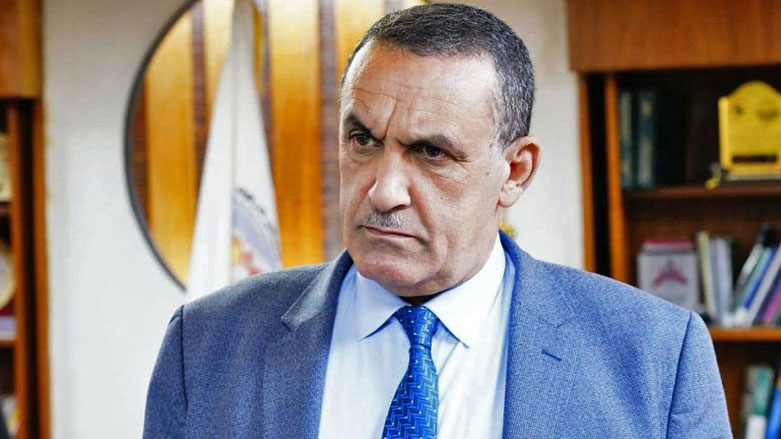Iraq orders travel ban on Baghdad-imposed governor of Kirkuk over corruption claims

ERBIL (Kurdistan 24) – Iraq's main anti-corruption body on Tuesday announced it had issued a summoning order and placed a travel ban on the Baghdad-imposed governor of the disputed province of Kirkuk province, Rakan al-Jabouri, as well as the arrest of nearly two dozen other public servants.
The Iraqi Integrity Commission said in a statement that an investigation court had issued the orders on allegations of "the waste of public money in the project of constructing schools using the prefabricated construction method referred to a foreign company" for about 58 billion dinars, nearly 49 million US dollars.
Prefabrication refers to a method of construction that involves assembling premade building components such as walls, on-site. The costs associated with this method of construction are cheaper and, from the commission statement, are presumably far lower than the budget allocated for the projects.
It added that the court had also issued "arrest warrants and travel bans in the same case for 23 employees of the province and the General Directorate of Education, including its former director-general."
The charges have reportedly been brought under the provisions of Article 340 of the Iraqi Penal Code, which stipulates that public servants convicted of intentionally wasting funds or causing damage to the interests of the entity for which they work can be imprisoned for a period not exceeding seven years.
At the end of last month, the federal anti-corruption body announced it was regulating the Kirkuk construction project that includes the building of schools and that the contractor company had tampered with the basic designs and reduced the number of schools from 25 to 18, contrary to the terms of the contracts and without obtaining the approval of the Federal Ministry of Planning.
The commission has previously ordered travel freezes against dozens of officials in Kirkuk, as well as employees working in the inner circle of Governor Jabouri, who took the post after the 2017 attack on Kurdish Peshmerga in the province by Iraqi forces and Iranian-backed militias. The assault was in response to the Kurdistan Region's historic independence referendum just weeks before.
Baghdad's military move eventually led to Jabouri, an ethnic Arab, replacing then-governor Najmaldin Karim, a Kurd.
Jabouri has since been involved in several scandals and charged with corruption. Nonetheless, he continues to hold the position of acting provincial governor.
Related Article: Kirkuk's acting governor summoned to answer for 'targeting' of Kurdish population
The Kurdish community in Kirkuk has suffered countless injustices since then, including being pressured to leave their homes by self-proclaimed owners of Arab descent using property deeds issued during Saddam Hussein's anti-Kurd ethnic cleansing program known as "Arabization."
Read More: Kurdish residents of disputed Kirkuk village say new 'Arabization' underway
The embattled Middle Eastern nation continues to rank high on Transparency International's list for corruption, fraud, and mismanagement of state institutions, some of the most significant challenges facing the country since the fall of the former regime in 2003.
According to the organization's 2019 Corruption Index, Iraq ranks 162nd, the 18th most corrupt country out of a total of 180.
Editing by John J. Catherine
(This article previously incorrectly stated that the project budget was about "half a million US dollars." This has since been corrected to state the reported amount, which is "nearly 49 million US dollars.")
